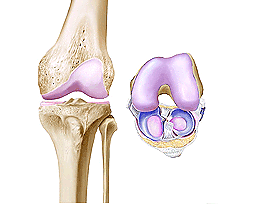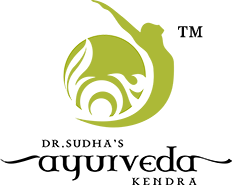
Osteoarthritis
Osteoarthritis also called as Osteoarthrosis and Degenerative, Joint disease. It is most common form of arthritis. It is characterized by degeneration of the articualar cartilage and the formation of bony outgrowths at the edges of the affected joints. Usually only one or two of the larger joints are involved. Pathologically we can defined-as a condition of synovial joint characterized by focal loss of articlular hyaline cartilage simultaneous proliferation of new bone with remodeling of joint contour, inflammation is not a prominent feature.
Knees and hip are the principal large joints affected. Knee OA is more prevalent than hip OA , but taken together they effect 10-25% of those aged over 65 yrs. OA is more prevalent and more commonly associates with symptoms in women, except at the hip where both genders are equally affected. Classification primary OA- appears insidiously, without apparent initiating cause as on aging phenomenon Secondary OA- appears after repeated micro traumatic injuries or previous macro traumatic injuries to a joint or some underlying systemic diseases such as diabetes, obesity, poor metabolism of calcium in the body it happens mostly to women after menopause and vitamin d deficiency due to lack of exposure to sunlight.
Some occupational risks for OA include:
Farming-hip OA
Mining –knee OA
Professional football-knee OA
Clinical features of osteoarthritis:
Restricted movement (Capsular thickening, blocking by osteophytes).
Palpable, sometimes audible coarse crepitus (due to rough articular surface)
Bony swelling (osteophytes)
Penarticular tenderness
Muscle weakness and wasting
No or mild synovitis deformity
Knee OA: targets the patello femoral and medial tibio femoral comportment of the knee.
Trauma more important risk factor in male may result in unilateral OA. In female most knees OA is bilateral and symmetrical Most knee OA pain is well localized to the anterior or medial aspect of knee and upper tibia.
Patello femoral pain is usually woarse when going up and down stairs. Difficulties in prolonged walking rising from a chair getting in and out of a car or bending to put on shoe or socks.
Local examination findings are:
A jerky, asymmetric antalgic gait
Periarticicular tenderness (Upper medial tibia)
Weakness and wasting of the quadriceps muscles
Restricted flexion/extension with coarse creptius
Bony swelling around the joint line.
A varus deformity (displacement of foot towards midline)
According to Ayurveda-known as Sandhivata. Sandhi means-joint
Vata-means disease caused by vitiation of vata dosha. Exposed to dry and cold climate, suppression of natural urges, excessive exercise, stress, always aggravate vata dosh. There is already vata aggravation in old age. So this vitiated vata dosha causes degenerative changes in joints.
Investigation to confirm the diagnosis:
Do-Plain X-Ray of knee joint
Synovial fluid aspiration
Radioisotope bone scan
Prevention in early stage:
If undue stresses and strains can be removed from the affected joints by a change of occupation or transfer to lighter work. To give up unduly strenuous hobbies fitting of rubber heals to the footwear may help by reducing jarring and minimizing the risk of slipping. In obese patients-reduction in weight, If pain is prominent rest in bed, do abhyanga (Local application) with special medicated oil. It will help to reduce stiffness and then do exercises.
Treatment:
Analgesics
Intra articular injection of hydrocortisone may be helpful
If above fails-surgery
Ayurvedic Treatment: If the symptoms have recently started then oral medication, calcium supplementation and local massage with medicated oils will help.
Valiya rasnadi kahayam
Cheriya rasnadi kashayam
Dhanwantharam Kashayam
Sahacharbaladi kashayam
Dhanwantharishtam
Balarishtam
Yograj guggulu
Gokshuradi guggulu
Punarnavadi guggulu,etc.
Panchkarma and kerala therapy:
Snehan and swedan
Most authentic panchkarma treatment is very effective for all types of arthritis. The kerala’s ancient treatment is pizhichil i.e. oil bath because patient is literally bathed with lost of warm medicated oil with massage followed by vaspa swedan.
Januvasthi: The medicated oil is allowed to stay over affected area (knee joint), it will help to remove the stiffness and makes the movement more comfortable.
Vasthi: sneha and kashaya vasthi alternately. It is the best treatment for vitiation of vata dosha and detoxification.
If there is any family history of osteoarthritis have pizhichil therapy in advance for 7-14-21 days (depending upon the symptoms of patient). It will prevent degenerative changes.

